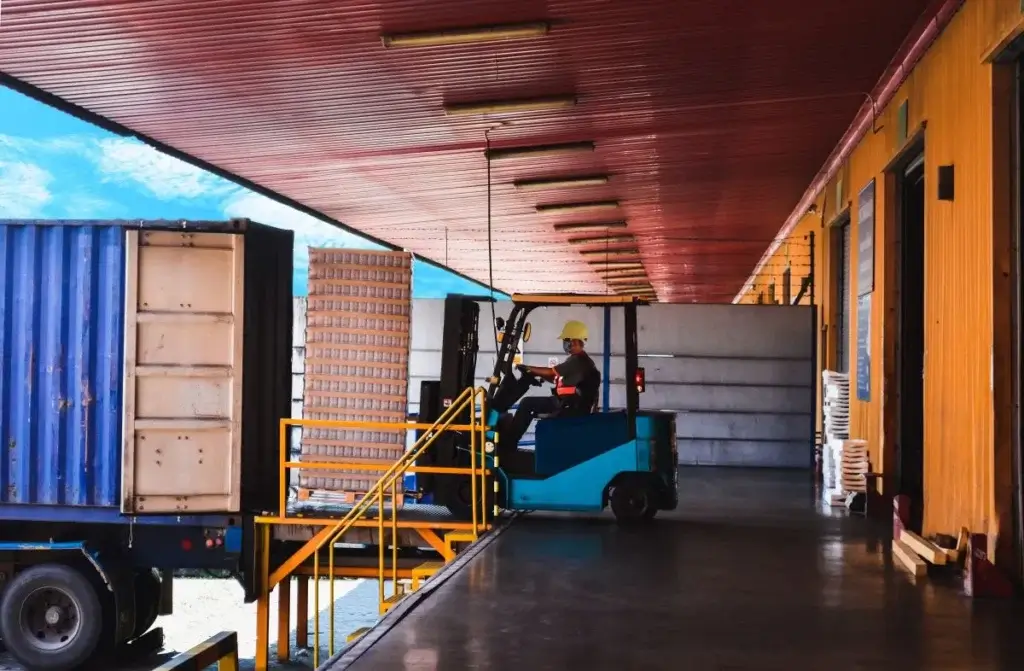Internal logistics, storage, but also transport. The principles of the Kaizen philosophy originating from Japan can be applied in practically every field. Many management systems in the Western world are based on Kaizen. Consistent application of simple rules translates into tangible results in Japanese companies such as Honda, Toyota or Sony, but also more and more often in European ones. The system was implemented e.g. in the Polish Synthos Group as early as ten years ago.
The name ‘Kaizen’ is a cluster of two words: kai (i.e. change) and zen (i.e. good). Together, this means continuous improvement. Kaizen philosophy focuses on implementing even small increases in all areas of activity and at every workplace. In practice, the application of the Kaizen philosophy in the company is based on the involvement of all employees, regardless of the level at which they operate. The aim is to search for ideas to improve their working environment. The employees can suggest improvements to their workplaces because they know them best.
Kaizen breaks organisational barriers, enabling the rank and file employees to influence the way their work is done
Rewarding employees for their ideas provides additional motivation. Kaizen is, in fact, a set of several (some people list a dozen or so of them) basic principles. They all concern action, responding to its effects, preventing problems, minimising the risk of making mistakes, dealing with specific situations. And it is the word ‘problem’ that can be regarded as a sort of key. According to the supporters of ‘Kaizen thinking’, the problem is the main driving force, and it generates opportunities. Nothing else but a problem at work creates a basis for new ideas on how to solve it.
There are no dead-end situations
The solution can turn out to be very simple. First, according to Kaizen, the method of 5 Whys should be used. It is used to determine the root cause of the problem. Asking a few questions (why?) allows you to come to the source of the problem, thoroughly investigate the cause and focus on resolving it effectively. We find out not only why the question arose, but also why we did not notice it. It is essential to carry out a step-by-step analysis and focus on the causes attributable to processes, not people. It is worth looking for solutions that can be used!
Ideas are worth drawing from everyone, and inspirations are everywhere – this is one of the basic Kaizen principles. The system of suggestion boxes was introduced in Japanese, USA and Western European manufacturing plants many years ago. At first, many people were sceptical, but later they got used to the boxes and even appreciated them. It is essential to reject the status quo in every situation, and on the other hand, not to accept any excuses that it is impossible to do something. It is also essential, when looking for new solutions, to focus on those who are currently feasible and which can be applied.
Do not wait for perfect solutions, choose the simple ones
Kaizen recommends focusing on improvement. There is no point in thinking about something that is difficult and complicated to implement. It is essential to have both feet on the ground and to reach for simple but effective solutions. Practice shows that sometimes, especially in logistics or warehousing processes, better solutions are at your fingertips, and the benefit can be gained by, for example, a relatively simple optimisation of transport routes in the warehouse. If it turns out that the situation is still far from ideal, it is recommended to correct any mistakes or errors immediately.
Money is not a cure to all evil
Kaizen strongly denies the belief that money will help with everything. In Kaizen philosophy, being creative and smart is more important. Answers to many questions can be found in the neighbourhood, in the surroundings, and there is no need to spend a penny on it. It is always worth trying to answer the following question: How can I solve a problem without money? Continuously pushing forward!
Kaizen philosophy also makes us aware that no process is ever complete. The fact that we have improved something does not mean that we can be complacent. There are next challenges and the next small steps ahead of us.
Photo: Pixabay











